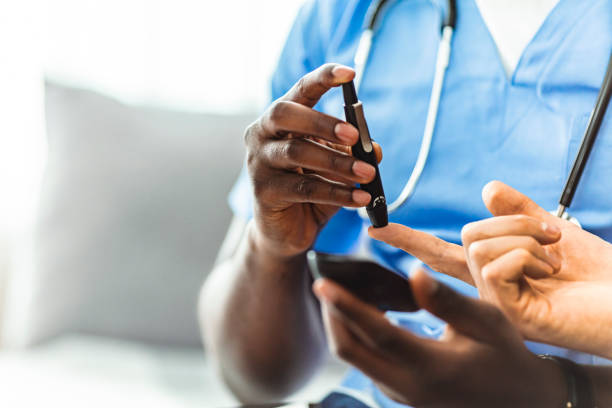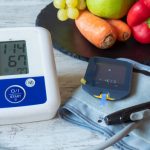The ONE organ responsible for high blood pressure.
Relationship between blood pressure and diabetes

How your body regulates glucose levels
First, let's review some basic information about blood sugar (glucose). Blood glucose serves as the primary source of energy for all of your body's cells. There are other molecules that the body can use as fuel when needed, such as ketones, but for the sake of simplicity we will focus on glucose here.
Your body has sensors that determine whether you have normal blood glucose levels. In people without diabetes, this level is usually between 70 and 120 mg/dl (milligrams per deciliter). There are many hormones that either activate or go silent as needed to protect this glucose level. If the level goes too low, your body can release catecholamine hormones (commonly known as adrenaline hormones) to trigger a rise in blood glucose levels. If blood glucose goes too high, your body will release insulin and other hormones to correct the level back down to the appropriate range.
People with diabetes do not lose their ability to raise or lower blood sugar levels; rather, the hormones that serve to keep blood glucose levels in the right range do not function properly, and the sensors that assess glucose levels are also often impaired.
How the body regulates blood pressure
A similar set of processes applies to maintaining healthy blood pressure levels. In many ways, keeping your blood pressure in the right range is even more important than keeping your blood glucose in the right range. Your body has plenty of ways to "make" more blood sugar, as well as create alternative energy sources such as ketones. But we don't have any way to "make" more blood pressure. The body can protect blood glucose levels much better than it can protect blood pressure. If we experience low blood volume, we can't immediately add more. If we don't have enough blood, we will pass out, and this is very dangerous for the brain and body in the long term.
Having limited ability to raise blood pressure, the body relies on the same hormones that activate when blood glucose is low-catecholamines, or adrenaline, hormones to affect this change. Catecholamines tighten blood vessels, making it harder for the heart to pump blood through the arteries, which raises blood pressure.
On the other hand, if blood pressure is too high, the body wants to remove blood to reduce the overall volume in the vessels and make it easier for the heart to pump blood through the arteries. To achieve this, nitric oxide is released, which dilates (expands) the blood vessels and reduces the pressure on our heart. When the blood vessels in the kidneys dilate, this causes them to release more water to lower blood pressure. This effect is known as diuresis, or fluid removal. These are just a few ways to control blood pressure, and they are the most common.
People with hypertension, a condition in which blood pressure is elevated, are not prevented from controlling their blood pressure. However, as with people with diabetes, their sensors are impaired and their response to high or low blood pressure is not always accurate.
How does blood sugar affect blood pressure?
How are the two systems related? Insulin, which plays a role in controlling blood glucose levels, has an unfortunate relationship with the production of nitric oxide in blood vessels. It blocks the body's ability to produce nitric oxide. Nitric oxide is important for blood vessels because it is one of the few ways to expand the size of blood vessels and lower blood pressure. If a person with diabetes uses insulin, it severely impairs the body's ability to lower blood pressure by producing nitric oxide, which in turn increases the risk of high blood pressure.
In situations where blood pressure is too low, the catecholamine response described above does not discriminate, and as a result, blood sugar will also rise. The same thing happens when blood sugar is too low; the catecholamine response is the first thing the body uses to compensate for this, and this in turn causes blood pressure to rise. Thus, low blood sugar or low blood pressure can cause others to go high. It's important to realize that some medications that lower blood pressure or blood glucose levels override any natural defenses we have and trigger these events.









